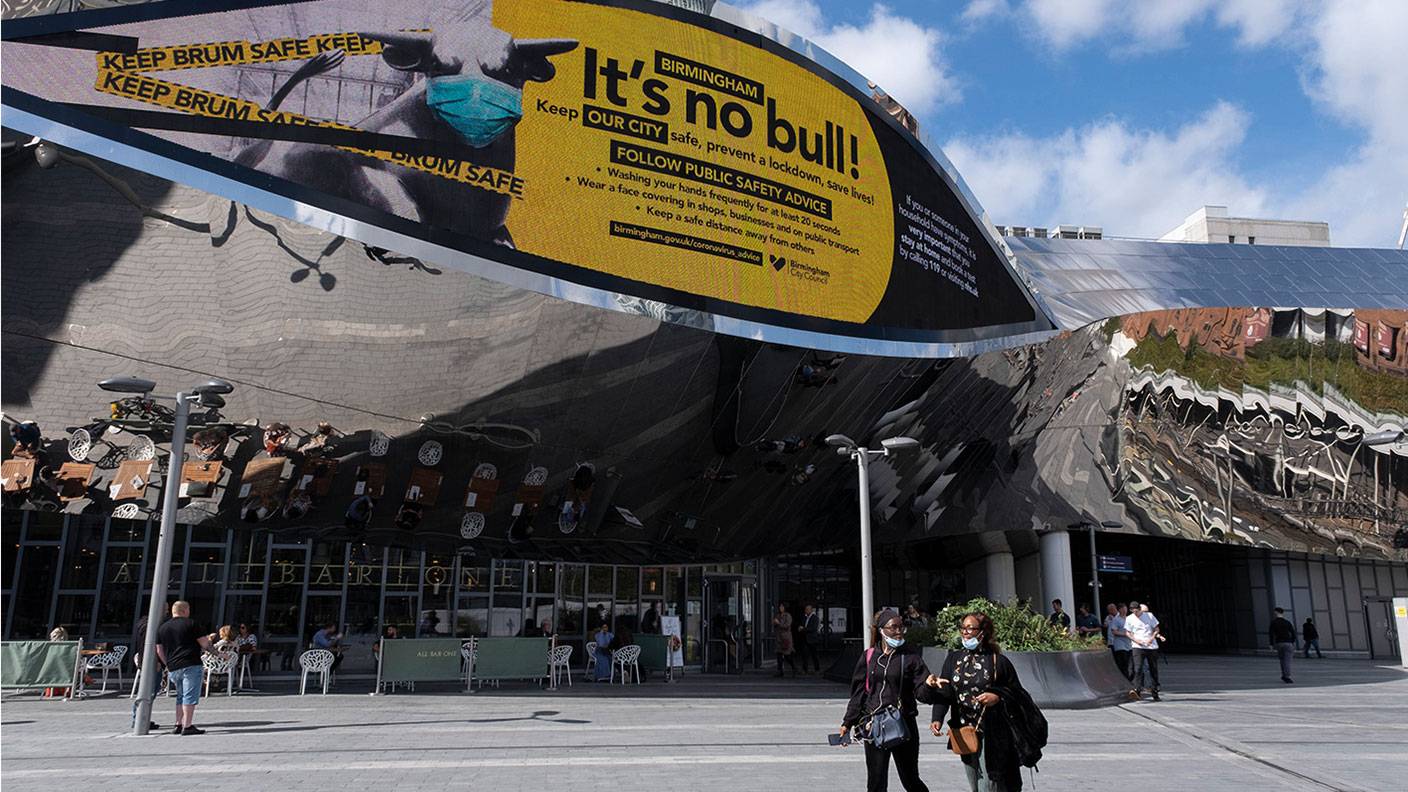Lockdown hammers commercial landlord Hammerson
Three quarters of the tenants of shopping-centre operator Hammerson have been forced to close during the lockdown.


Get the latest financial news, insights and expert analysis from our award-winning MoneyWeek team, to help you understand what really matters when it comes to your finances.
You are now subscribed
Your newsletter sign-up was successful
Want to add more newsletters?

Twice daily
MoneyWeek
Get the latest financial news, insights and expert analysis from our award-winning MoneyWeek team, to help you understand what really matters when it comes to your finances.

Four times a week
Look After My Bills
Sign up to our free money-saving newsletter, filled with the latest news and expert advice to help you find the best tips and deals for managing your bills. Start saving today!
Thanks to the lockdown, only a quarter of shopping centre Hammerson’s tenants are allowed to remain open, says Joanna Bourke in the Evening Standard. Shops in its sites in France are subject to a 6pm curfew. It has therefore been forced to agree “rent holidays, deferrals and ... monthly payments for some firms across its estate”. Hammerson collected“just 41%” of the rent it was due to receive for the first quarter of 2021, though this is an improvement on what it received when the first lockdown was imposed.
Even before the crisis, Hammerson was under “sustained pressure”, with retailers struggling to contend with “online competition, high business rates and rising wage costs”, says Louisa Clarence-Smith in The Times. Since March retailers have paid only about 50% of the rent owed to landlords. With the shares down by 80% from the peak and finance chief James Lenton, who only joined the company in September 2019, set to quit, analysts are warning that the company is “still too highly geared”, with a 42% loan-to-value ratio even after a £552m survival rights issue in August.
The fate of rival property firm Intu is a cautionary tale for Hammerson’s investors, says George Hammond in the Financial Times. It was forced into administration last summer and then suffered the indignity of a “lack of willing buyers” for its portfolio of shopping centres. Even the Trafford Centre in Manchester, considered “the jewel in Intu’s crown”, is now owned by one of its lenders after a sales process “failed to attract any viable bids”.
MoneyWeek
Subscribe to MoneyWeek today and get your first six magazine issues absolutely FREE

Sign up to Money Morning
Don't miss the latest investment and personal finances news, market analysis, plus money-saving tips with our free twice-daily newsletter
Don't miss the latest investment and personal finances news, market analysis, plus money-saving tips with our free twice-daily newsletter
Get the latest financial news, insights and expert analysis from our award-winning MoneyWeek team, to help you understand what really matters when it comes to your finances.

-
 How a ‘great view’ from your home can boost its value by 35%
How a ‘great view’ from your home can boost its value by 35%A house that comes with a picturesque backdrop could add tens of thousands of pounds to its asking price – but how does each region compare?
-
 What is a care fees annuity and how much does it cost?
What is a care fees annuity and how much does it cost?How we will be cared for in our later years – and how much we are willing to pay for it – are conversations best had as early as possible. One option to cover the cost is a care fees annuity. We look at the pros and cons.
-
 Three key winners from the AI boom and beyond
Three key winners from the AI boom and beyondJames Harries of the Trojan Global Income Fund picks three promising stocks that transcend the hype of the AI boom
-
 RTX Corporation is a strong player in a growth market
RTX Corporation is a strong player in a growth marketRTX Corporation’s order backlog means investors can look forward to years of rising profits
-
 Profit from MSCI – the backbone of finance
Profit from MSCI – the backbone of financeAs an index provider, MSCI is a key part of the global financial system. Its shares look cheap
-
 'AI is the real deal – it will change our world in more ways than we can imagine'
'AI is the real deal – it will change our world in more ways than we can imagine'Interview Rob Arnott of Research Affiliates talks to Andrew Van Sickle about the AI bubble, the impact of tariffs on inflation and the outlook for gold and China
-
 Should investors join the rush for venture-capital trusts?
Should investors join the rush for venture-capital trusts?Opinion Investors hoping to buy into venture-capital trusts before the end of the tax year may need to move quickly, says David Prosser
-
 Food and drinks giants seek an image makeover – here's what they're doing
Food and drinks giants seek an image makeover – here's what they're doingThe global food and drink industry is having to change pace to retain its famous appeal for defensive investors. Who will be the winners?
-
 Barings Emerging Europe trust bounces back from Russia woes
Barings Emerging Europe trust bounces back from Russia woesBarings Emerging Europe trust has added the Middle East and Africa to its mandate, delivering a strong recovery, says Max King
-
 How a dovish Federal Reserve could affect you
How a dovish Federal Reserve could affect youTrump’s pick for the US Federal Reserve is not so much of a yes-man as his rival, but interest rates will still come down quickly, says Cris Sholto Heaton